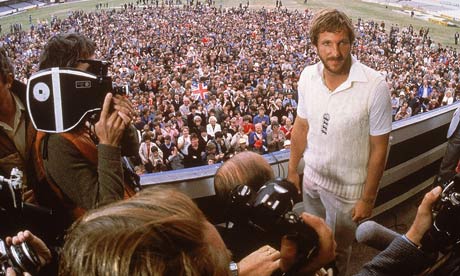
Last night I finally got round to watching ‘Botham: The Legend of ‘81’, which had been sitting on my Sky planner for a while. It was well worth it. As someone who first started watching cricket in the 1980s, and who was a junior member at Worcestershire when the club signed Sir Ian, I remember Botham fondly. However, as I was only knee high to Gus Logie back then, I often wonder whether my memories are accurate. Was Beefy really that brilliant?
I suppose it’s human nature to remember the great performances – and block out the times when your heroes had their middle stump knocked out. I can tell you categorically that I don’t remember Graeme Hick being dismissed for a low score at New Road once, even though I must have attended over a hundred matches. Surely even Hicky wasn’t that good!
Misty eyed cricket documentaries usually don’t offer the most objective assessments of a player’s talents. However, this one did – whether it was intentional or not. Obviously the programme contained the usual footage of Beefy smashing the Aussie bowlers around Headingley, and cricket luminaries like Stephen Fry, Sir Mick Jagger, and Elton John (yes, Sir Elton) reminiscing about Botham’s ability to turn a match on its head, but the one thing that stuck with me was how much of Beefy’s career was a disappointment.
The documentary focussed on Sir Ian’s travails as England captain in great detail. It also described how the start of his career was brilliant, but thereafter his form remained in the doldrums for long periods. For example, did you know that he got a pair in the test immediately before Headingley ‘81?
And did you know that, much like Andrew Flintoff, Sir Ian spectacularly failed to repeat his Ashes heroics in the return series down under – a tour in which England’s great all-rounder was regularly accused of being unprofessional due to his off-field antics? Again the similarities to Freddy in 2005 and 2006/07 are uncanny.
During Flintoff’s career, Freddy was compared to Ian Botham ad nauseum. I hated these comparisons at the time, but now I think they have some merit. Like Beefy, Freddy was more consistent as a bowler than a batsman.
Of course there was always excitement and expectation when Botham strode to the wicket – something worth watching inevitably happened – but as Stephen Fry eloquently reminded viewers in the documentary, Beefy was dismissed for a low score a lot more than he made substantial runs. Sound familiar, Flintoff fans?
After the Ashes in ’81, Beefy had the world at his feet. He was at the peak of his powers and had just been named sports personality of the year. However, as his friend David Gower reminded us, Botham largely failed in his quest to become the world’s greatest all-rounder.
Instead, he rested on his laurels and failed to practice hard enough – instead believing that if he ‘went out there and swung that bat’ the magic would somehow happen. Invariably it didn’t.
Because of all this, Botham never really fulfilled his potential. A career test average of 33.5 with the bat, and 28.4 with the ball was tidy enough, but hardly awe inspiring. Incidentally, Beefy’s nemesis, Imran Khan, averaged 37.7 with the bat and 22.8 with the ball. The statistics say it all really.
Fortunately for his Beefiness, the English public care little about stats – and I doubt Sir Ian does either. We love our sportsmen for their charisma and what they represent. Botham was an entertainer from an ordinary background who took on cricket’s elite and wasn’t afraid to poke authority in the eye. That’s why we love him.
The fact that he was essentially an inconsistent cricketer, capable of so much more, doesn’t bother us England fans. Botham appeared in seven Ashes series and emerged victorious five times – thus cementing his legacy as the patron saint of Aussie-bashers.
When you throw in Beefy’s incredible charity work – which the documentary also described in heart-warming fashion – the portrait of an amiable man with an irrepressible spirit is complete. There is no doubt that Botham deserved his knighthood.
But what about Botham the cricketer – is it even possible to be objective? Sir Ian was capable of brilliance on a good day, and his big personality, so free of the stuffiness that characterised some of his contemporaries, more than made up for the bad ones.
Consequently, ‘Botham: The Legend of ’81’ was a far more appropriate title that the BBC realised. Botham was a world class player capable of brilliance, but like legends going back to medieval times, truth and myth have become entwined. Beefy was good, but was he really an all time great?
James Morgan


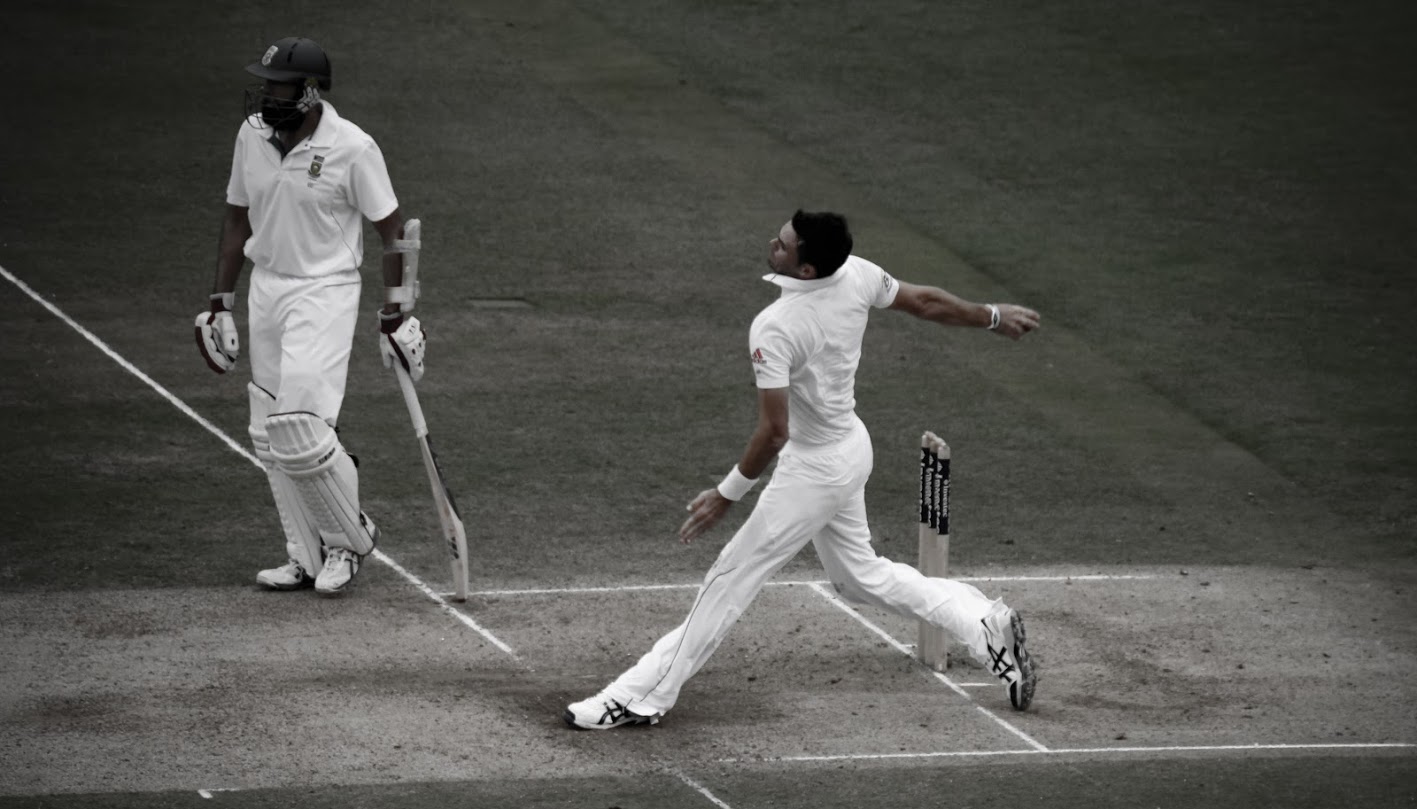
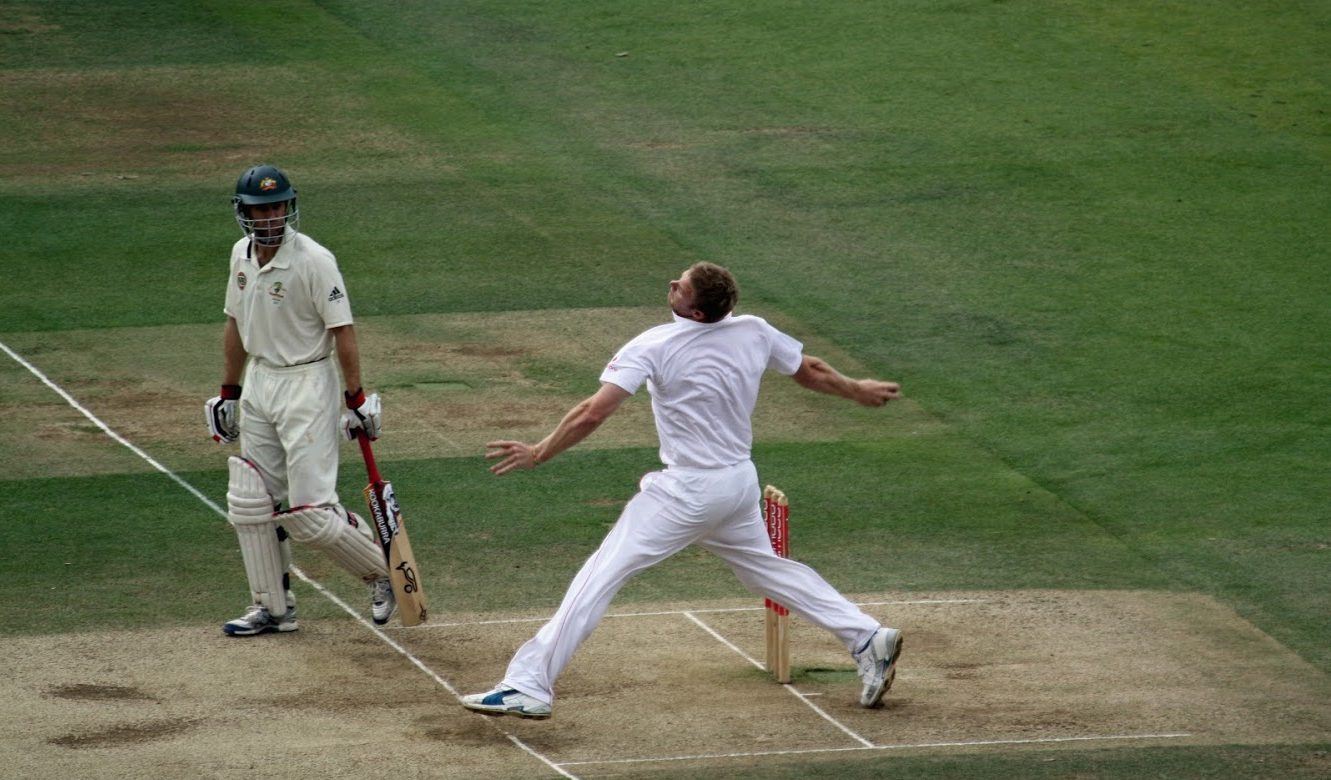
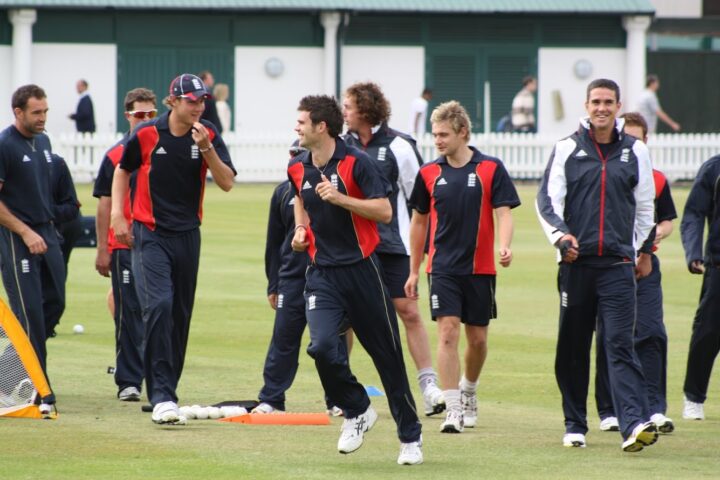
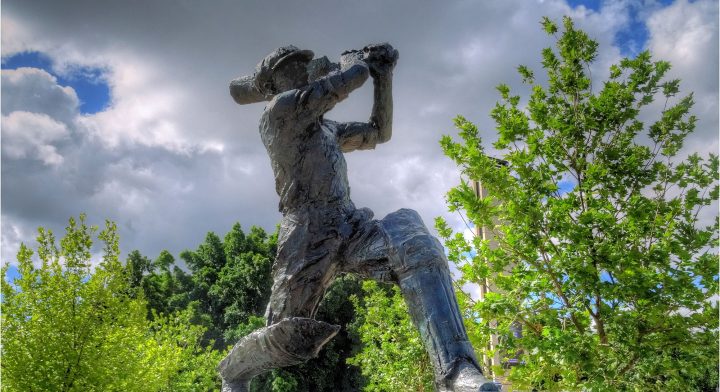



MHA here. It seems to me that nowadays England supporters are ambivalent about Botham. We don’t warm to him in the way we might to other eighties icons like Gower and Gooch. That may be mainly due to his awful TV commentary – his pompous dullardry has diminished his stature.
I think that’s rather harsh. Beefy isn’t the most eloquent commentator, but I don’t think that’s his role on the team. He’s there for a bit of sabre rattling. I also think that most people separate Botham the cricketer from Botham the commentator. His cricket was full of colour – whereas his commentary is a tad dry. EIther way, I think most people warm to the memory of Botham a lot more than, say, Gooch (who was known as a workaholic lacking charisma somewhat)
The year after he left Worcestershire for his native, and newly first class, Durham, Botham returned to New Road in a One Day game: the B&H cup or NatWest Trophy, probably the former but my memory is hazy on which.
One moment is forever etched in the memory however:
Botham strolled out at four or five, clobbered a straight six into the stand at the Diglis End (he seemed to prefer hitting sixes in that direction for some reason) and then played forward defensively to a ball from a spinner: probably Richard Illingworth. Bat pad caught the ball, and there was a huge roar from the crowd who though Botham had gone early.
ITB tucked his bat under his arm, and started to walk off in the direction of the pavillion. Cue huge laughter from the Worcester players, and umpires.
It seems the ball had come off the knee roll, and appeared a catch only to spectators 30 meters away.
A moment in time which demonstrates the charm of the man.
“his pompous dullardry has diminished his stature”
So true, and so sad.
Maybe it’s the knighthood what done it.
Tarka, I am not sure whether Botham lived in Durham when young but I do know he was born in Cheshire.
This led to a very unusual England seam bowling line up at Old Trafford in 1985. Heswall born Botham, bowled alongside Macclesfield born Jonathan Agnew and Altrincham born Paul Allott. A full Cheshire set of seam bowlers, not bad for a minor county!
But what a player! Yes his statistics may not be up to much and I well remember the Lord’s pair and the silent ground as he walked back to the pavilion when dismissed for the second time. But it wasn’t just the Headingley performance that turned things around. He then went on to Edgbaston for the next test and finished it off with a spell of five wickets for one run. He then went to Old Trafford and hit another wonderful hundred.
Though there are plenty of comparisons to Flintoff, there are differences too. Botham had to play large amounts of county cricket between England games. As a keen Lancashire supporter, I would not normally enjoy someone scoring well against them. But watching Botham’s 139 for Somerset against Lancashire at Old Trafford in 1986 was a wonderful experience.
I have always been keen on the statistics of the game, but for Botham, I make an exception. What a player!
Yes nicely put James. Maybe stats aren’t everything!
I was asking myself some questions about Botham and why I have the impression of his brilliance and i think I found the answer. Back in those days before Sky tv you only got to watch home test and of course you ended up basing your opinions on what you saw.
In home tests in the first 5 years of his career when he wasnt captain he averaged 56.5 with the bat and 20.1 with the ball. Either of those would have been memorable. The two together and you build a reputation of brilliance that of course he could never live up to post back injury.